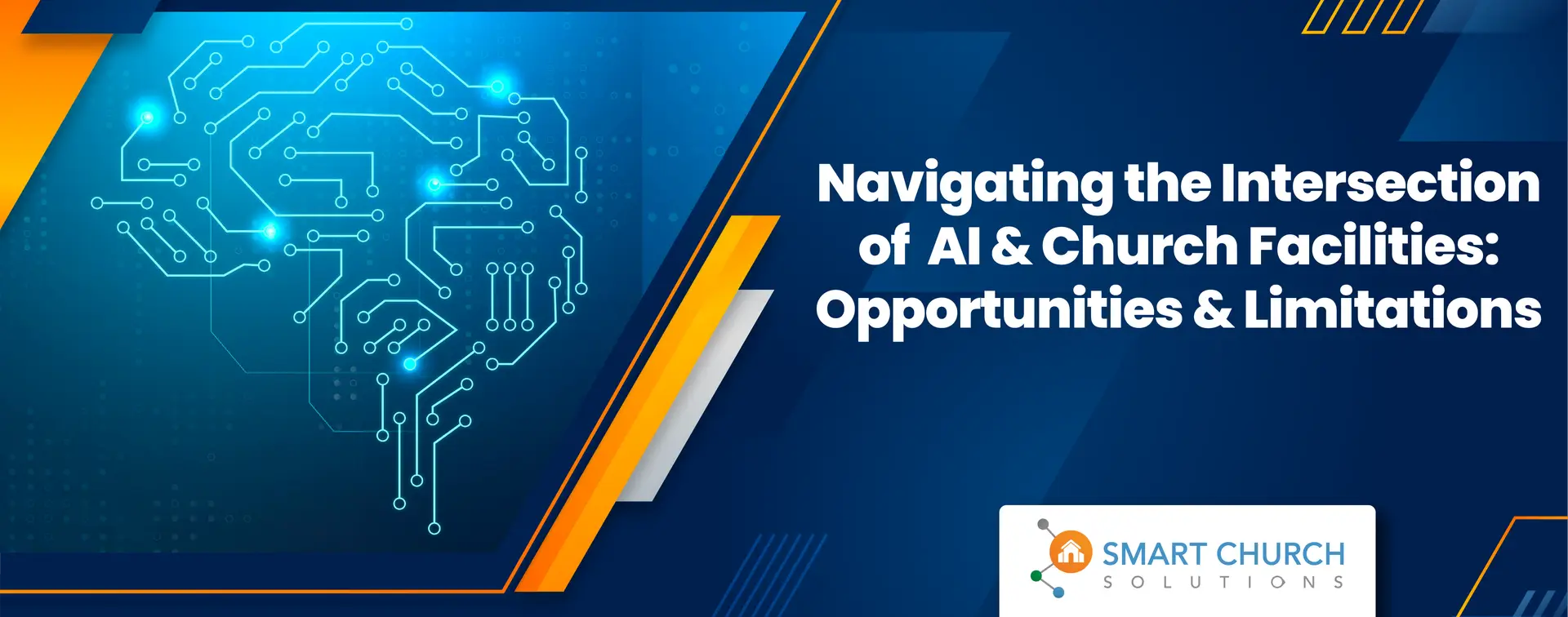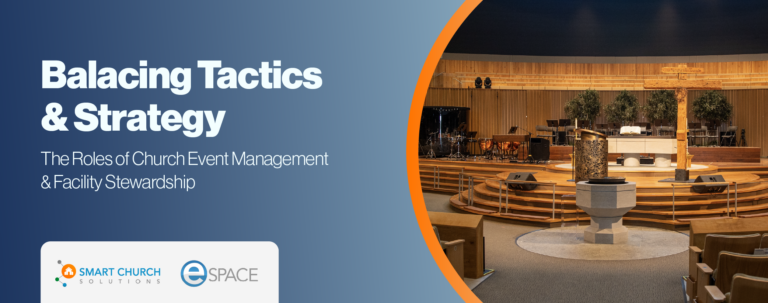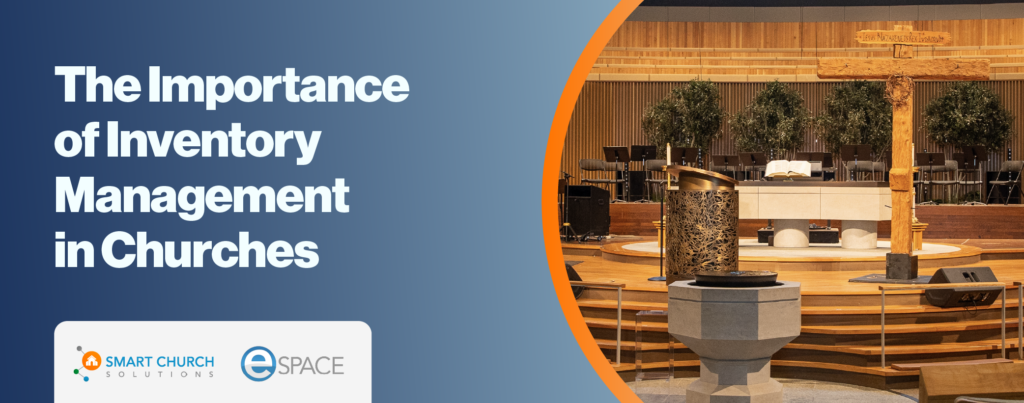In recent years, artificial intelligence (AI) has been increasingly integrated into various aspects of our lives, revolutionizing industries from healthcare to finance. One area that may not immediately come to mind when discussing AI is church facilities management.
However, the potential applications of AI in this context are both promising and nuanced. AI offers opportunities for enhanced efficiency, safety, and resource management while also presenting challenges and limitations that must be carefully considered.
The Promise of AI in Church Facilities
1. Resource Management
AI-powered systems can optimize the use of resources within church facilities. From energy consumption to space utilization, AI algorithms can analyze patterns and make real-time adjustments to minimize waste and maximize efficiency. In turn, this can lead to cost savings and a more sustainable operation.
2. Maintenance and Operations
AI-enabled predictive maintenance can anticipate equipment failures before they happen, reducing downtime and costly repairs. Sensors and IoT devices can collect data on the condition of various assets within the facility, allowing for proactive maintenance scheduling based on actual usage and wear.
3. Community Engagement
AI can facilitate better communication and engagement with the church community. Chatbots powered by natural language processing can provide instant responses to common queries, freeing staff to focus on more complex tasks. AI algorithms can also analyze social media and online platform data to understand community preferences and tailor outreach efforts accordingly.
The Limitations and Challenges of AI in Church Facilities
1. Ethical and Privacy Concerns
Implementing AI technologies raises ethical questions, particularly regarding privacy and data security. Facial recognition systems, for example, may infringe on individuals’ rights to privacy if not implemented carefully. Churches must navigate these concerns while striving to maintain trust within their communities.
2. Cost and Accessibility
While AI holds great potential, the initial investment required for implementation can be prohibitive for some churches, especially smaller congregations with limited budgets. Additionally, ensuring accessibility for all community members, including those with disabilities, may present challenges in deploying AI-driven solutions.
3. Human Element
Despite advancements in AI, some aspects of church operations still require human intuition and empathy. While automated systems can streamline processes, they cannot fully replace the personal touch of human interaction in pastoral care, counseling, and community support.
4. Reliability and Bias
AI algorithms are only as good as the data they are trained on. Biases in the data or the algorithms can lead to discriminatory outcomes or inaccurate predictions. It’s essential for churches to critically evaluate AI systems and ensure they are designed and implemented ethically and responsibly.
Conclusion: It’s a Balance
As churches explore the possibilities of integrating AI into their facilities and operations, it’s crucial to approach these technologies with both optimism and caution. While AI has tremendous potential to enhance efficiency, safety, and community engagement, it’s not a panacea and comes with challenges and limitations.
Bottom Line: By leveraging AI responsibly, churches can harness its power to serve their communities better while upholding their values of compassion, inclusivity, and ethical stewardship. Ultimately, the successful integration of AI into church facilities requires a thoughtful balance between embracing innovation and preserving the human-centered aspects of faith and community.








